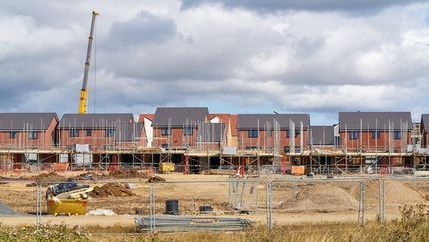
A ten-point plan for London
Support homeowners and landlords with energy efficiency improvements
Expand the Mayor’s Energy for Londoners programme to support owners to improve properties, reduce energy consumption, bring down the cost of bills and help achieve zero-carbon goals.
Release land for residential development
Speeding up planning and building on land under the Mayor’s control will ultimately allow more properties to be built and help make housing in London more affordable.
Power up partnerships
Increased collaboration between local authorities, property agents, and landlords will improve coordination, enforcement and information sharing to drive forward standards and compliance in the property sector.
Harness the skills of local property agents
Local authorities should enhance their procurement process for former local authority properties by collaborating with agents, for example by covering the agency fee when securing the sale of the property through the estate agent. By fostering such collaborations, local authorities can streamline the acquisition of properties, potentially securing better deals and efficiently expanding housing options within the community.
Avoid rent control
Flexible tenancies and rent prices driven by market forces have led to the success of the PRS in London and across the UK. It is vital that landlords are not deterred from the market and have finances to invest and improve property standards.
Enforce short term let rules
More needs to be done to crack down on commercial landlords who are not complying with local planning laws or the 90-day limit for short-term lets in London. Local authorities in London should consider licensing of short term lets if there are specific challenges from oversupply.
Licensing for London
The introduction of a PRS Database and Property Portal as part of the Renters (Reform) Bill should end the necessity for local authority property licensing. The Mayor of London should lead the way by exempting landlords from licence fees who use agents who are qualified and regulated by a professional body such as Propertymark.
Encourage employers to support renters
Interest free loans from employers support staff to secure a PRS property without incurring financial difficulty leading to debt and help companies recruit and retain staff.
Greater powers and devolution
London has housing challenges that are unique when compared to other areas of the UK. Greater powers and devolution to the Mayor of London are needed and HM Treasury should fund the Mayor’s block grant accordingly.
Boosting housing supply in all tenures
London needs more social and affordable housing, but private landlords must be part of the solution. With greater block grant funding from increased devolution, landlords could be incentivised to let to tenants in receipt of benefits or on low wages.
The capital faces unique challenges
The Mayor of London is in charge of a £21.7 billion budget and has a role in housing, planning and the environment. Importantly, the Mayor of London has the power to set targets on numbers and affordability of homes as well as approve or reject larger housing-building projects.
London’s average house prices remain the most expensive in the UK, with an average of £508,000 in December 2023 compared to £285,000 for the UK as a whole. Private rental prices in London increased by 6.9% in the 12 months to January 2024, the highest annual inflation of any English region, and the joint-highest annual change in London since January 2006, when records began.
Housing need is acute
The London Plan, adopted in March 2021, outlines a target to achieve 52,000 new housing completions per year, although using the UK Government’s latest version of the Standard Method for calculating housing need the figure for London is 85,000 homes per year. Even this is seen as an underestimate by many sector experts, because the calculation fails to account for historic shortfall in delivery against housing need.
The capital has seen the largest fall in delivery of any UK region, with 35,300 net additions in 2022-23, down 10 per cent on the previous year. In March 2024, Michael Gove, MP, Secretary of State for Housing wrote to the Mayor, Sadiq Khan, demanding a partial review of the London Plan focusing on industrial land and opportunity areas in the capital and citing chronic under-delivery during Khan’s time in office.





